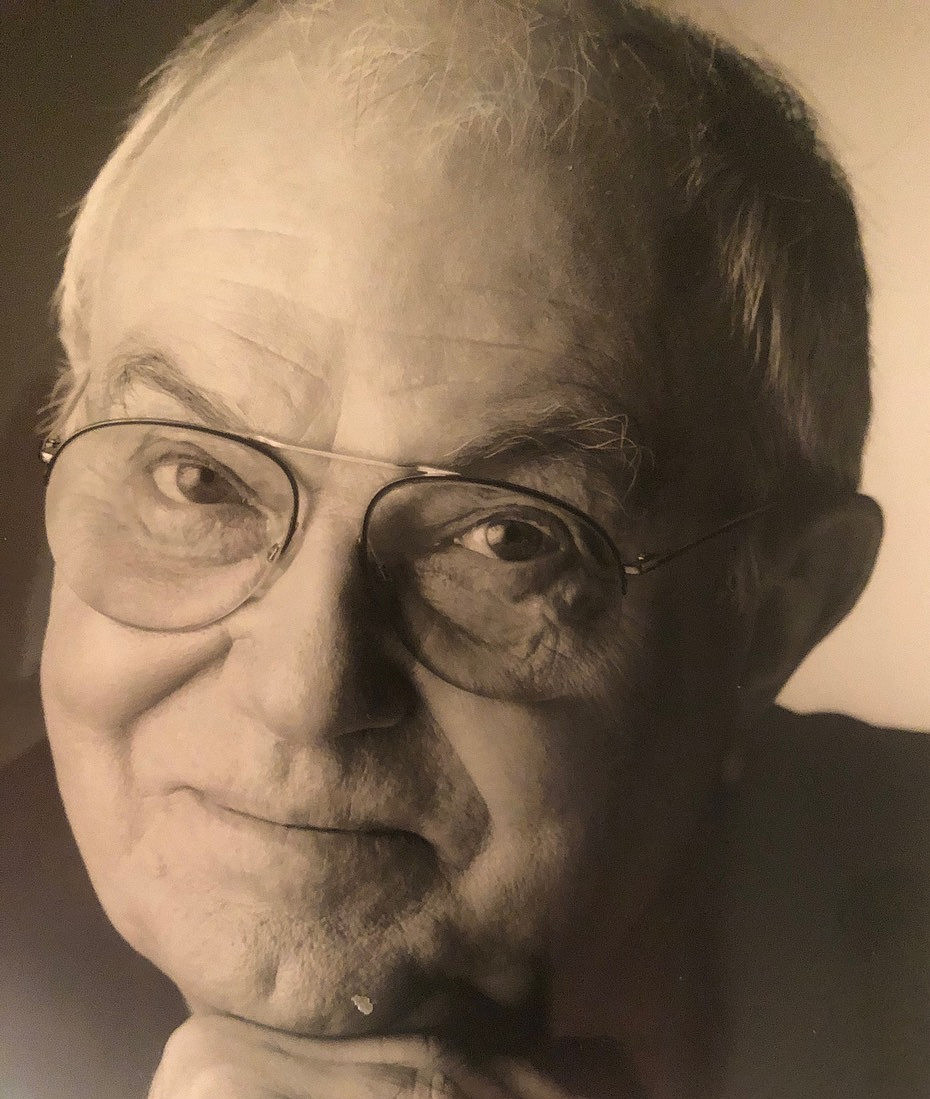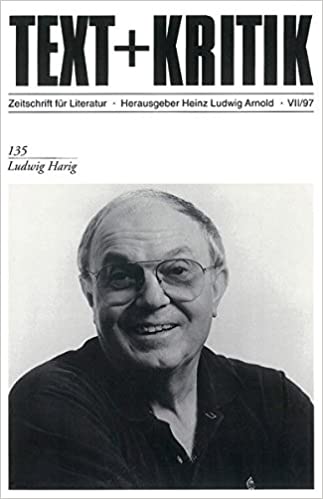Ludwig Harig
The content on this page was translated automatically.
In January 2001, the University of Kassel (GhK) was expecting its next Brothers Grimm guest professor. With Ludwig Harig came a writer whom his grandmother liked to call an "air coachman" and whose journeys still take him to peripheral areas and delicate zones of the past.
In the 1950s, Ludwig Harig tried out a way of writing in the environment of the language-experimental Stuttgart School around Max Bense, in which he tried to write against the prevailing aesthetics of the 1950s with the means of concrete poetry.
 Image: Archive Ludwig Harig
Image: Archive Ludwig Harig Image: text+criticism
Image: text+criticismDuring the 1960s, he worked in various borderline areas of literature, especially for the radio play, again with the effort to criticize ideological forms of communication with linguistic playful means.
With Harig's autobiographically influenced trilogy of novels published between 1986 and 1996, Ordnung ist das ganze Leben, Weh dem, der aus der Reihe tanzt and Wer mit den Wölfen heult, wird Wolf , he also became known to a wider literary public.
Ludwig Harig was born on July 18, 1927 in Sulzbach/Saar. Following his teacher training, he first worked in Lyon. From 1950-1970 he was an elementary school teacher in Dudweiler/Saar.
GPP event series with Ludwig Harig
In two lectures, Harig offered his listeners in Kassel an examination of the novel Der große Meaulnes, the only book by the Frenchman Henri Alain-Fournier (1886-1914), of which Harig wrote in the ZEIT column "Mein Jahrhundertbuch" (My Book of the Century): "A book of the century, on which the dust of an era that had just ended had already fallen a year after its publication - yet it did not remain! What it announces poetically is fulfilled in the reality of life." For Harig, the novel has become a cult book for a French and German youth searching for peace and meaning.